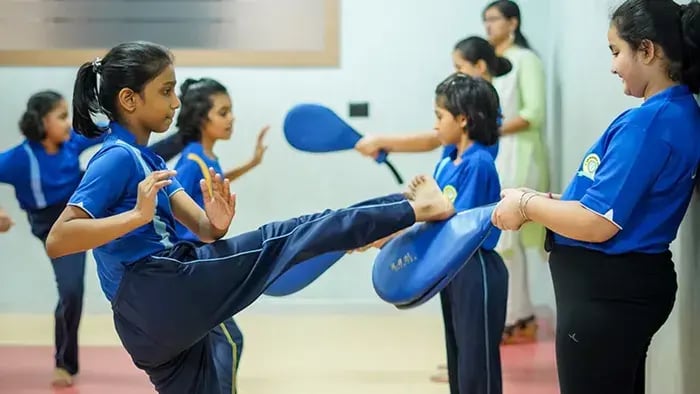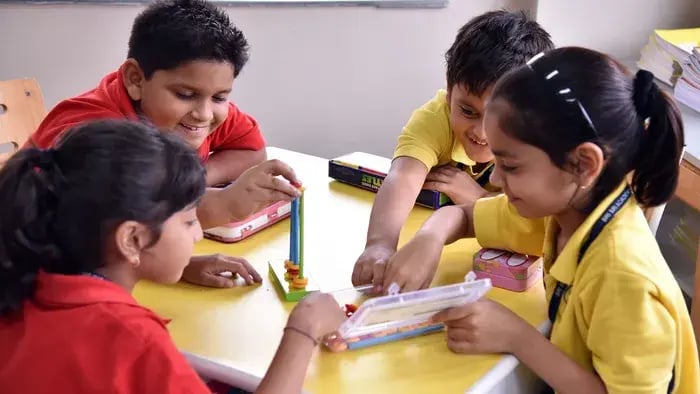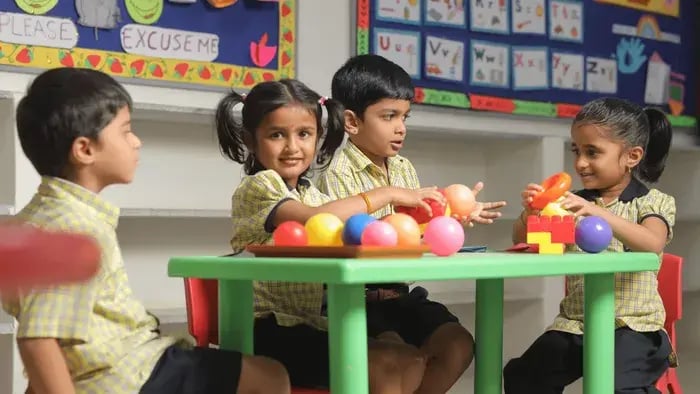- Classroom Activities
- Integrate Activities In The Curriculum
- Collaborative Projects
- Whole-Rounded Assessment
- Vocational Learning
- Organizing Events
- Parental Support
Introduction
Holistic education refers to a type of learning process in which a kid gets to learn different skills beyond their academic obligations. It emphasises the importance of participating in sports, engaging in social activities, acquiring life skills, and gaining practical knowledge that can be applied daily. Holistic education implies the importance of a well-rounded curriculum for kids that can help enhance their personalities and equip them with practical and real-life knowledge.
Just like a balanced diet, there is a great need for kids to study in a holistic environment to address areas beyond academics. It can enhance your child's confidence and also foster intellectual development.
7 Strategies to Support Holistic Development

Holistic development is an approach that can nurture your child’s various abilities and help bring out their hidden talent. It may also help with their personal growth, and provide them skills needed to perform well in various activities. Here is a list of seven strategies that can help in supporting holistic development among kids.
Classroom Activities

School is one of the primary learning environments for kids where they interact with teachers and peers to draw an understanding of various concepts and life skills. In a classroom, teachers can do a small activity before officially commencing their lesson. It could be a simple exercise, games that require teamwork and problem-solving, and craft activities as well. Kids can also be made to do activities in a group, such as Chinese whispers or making a simple craft project.
Integrate Activities In The Curriculum
By integrating activities into the curriculum, teachers can find it pretty easy to know what needs to be done before starting a particular lesson. For example, if a teacher has to start a chapter on arithmetic, then she may first begin with organizing an activity related to budgeting. This could be a hypothetical activity where a child is given a certain budget for shopping at a grocery store. It may help the child think more logically and concentrate before the beginning of the actual lesson.
Collaborative Projects
One of the best ways to instil teamwork and cooperation skills among kids is by making them do group activities and projects. It can help in nurturing a sense of communication and social skills, specifically among young kids. For example, before an English lesson on a grammatical concept, the teacher may divide the kids into teams and ask them some basic questions. The kids can work together to come up with a common solution to score points.
Whole-Rounded Assessment
Many times, schools and teachers may only focus on assessing a child based on their ability to learn or retain information. However, this may not work in the long run, and the child may only focus on rote memorization instead of actually understanding a particular concept. This is why conducting an assessment that checks a child's logical understanding, thinking skills, vocabulary, and general knowledge can help in understanding their aptitude.
Vocational Learning
Different types of vocational education, such as learning, music, dance, and theatre arts, can be an extremely stimulating experience for a child. One of the best aspects of learning vocational disciplines is that a child gets to be creative. It may also help a child overcome their stage fright, and get more confident while performing in front of others.
Organizing Events
Schools and teachers can collaborate to organize different types of events related to storytelling, debates, declamations, and vocational disciplines. It can help in fostering a positive environment where all types of skills are appreciated by the school administration. Moreover, by organizing such events, kids can get inspired by their peers to come forward and participate in activities of their choice without any hesitation.
Parental Support
Just like teachers, parents can also play an integral role in ensuring that a child has a well-rounded learning experience. They can encourage the child to try different hobbies and focus on other activities beyond their academics. This may make a child feel more confident and supported. Moreover, parents can also spend some quality time with their children by participating in different activities with them.
Conclusion

By focusing on holistic development, you can nurture your child's emotional, social, and even physical development. It's a great way of ensuring that your child is not just knowledgeable, but also a rational thinker, kind, and an asset to their community.
Pakhi writes with the belief that dessert isn’t just a dish—it’s a mood. Her work blends storytelling with tips, turning timeless treats and trendy bites into accessible moments of comfort, celebration, and creative expression.
The views expressed are that of the expert alone.
The information provided in this content is for informational purposes only and should not be considered a substitute for professional medical advice, diagnosis, or treatment. Always seek the advice of your physician or another qualified healthcare provider before making any significant changes to your diet, exercise, or medication routines.
















